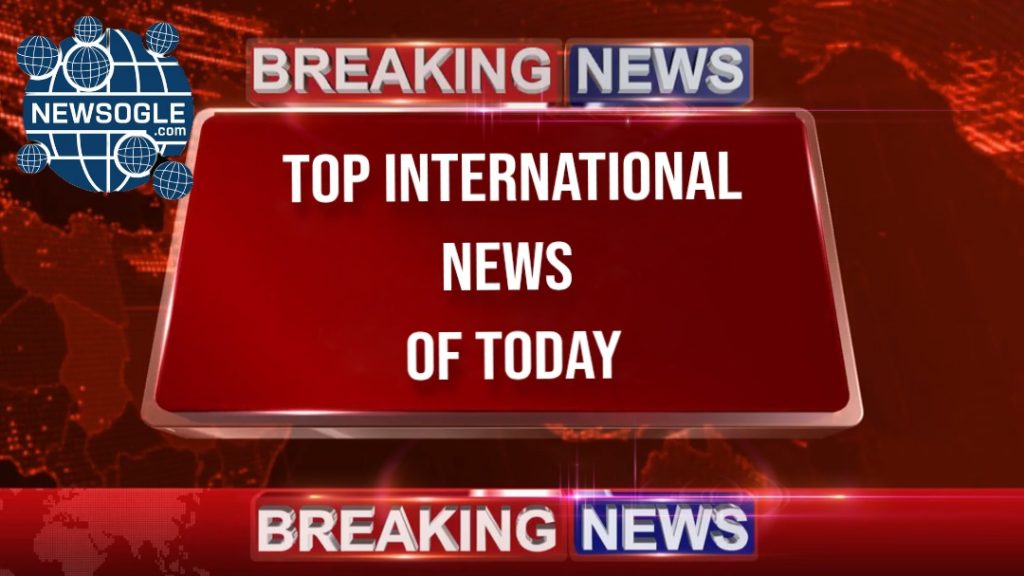
The world on July 8, 2025, is shaped by high-stakes diplomacy, intensifying conflicts, humanitarian emergencies, political upheaval, and transformative developments in technology, climate, and society. This comprehensive review synthesizes the most important, interesting, and consequential international news stories defining today’s global landscape.
1. Middle East: Gaza Ceasefire Talks, Violence, and Regional Diplomacy
Ceasefire Negotiations and Humanitarian Crisis in Gaza
- High-Level Diplomacy: Israel’s delegation remains in Qatar for renewed ceasefire talks with Hamas, under intense U.S. pressure to broker a deal after nearly 21 months of war in Gaza. The U.S.-backed proposal centers on a 60-day truce, partial release of Israeli hostages, and increased humanitarian aid. Hamas has signaled a “positive response” but demands guarantees for a permanent end to the war and a full Israeli withdrawal—terms Israel currently rejects.
- Leadership Dynamics: Prime Minister Benjamin Netanyahu is in Washington for his third meeting with President Trump in six months, facing pressure from both the U.S. and far-right coalition partners who oppose a ceasefire.
- On the Ground: Israeli airstrikes killed at least 36 Palestinians in Gaza today, with additional deaths among those seeking food aid. Hospitals remain overwhelmed, and public services are near collapse due to fuel shortages. Two American aid workers with the Israel-backed Gaza Humanitarian Foundation were injured in an attack at a food distribution site, which the organization blamed on Hamas.
- Public Sentiment: Protests are planned in Washington, D.C., and New York by Israeli expats and Jewish groups demanding an end to the war, the release of hostages, and increased humanitarian aid for Palestinians.
- Regional Shifts: The Palestinian Islamic Jihad has sent a delegation to Qatar for parallel ceasefire talks. Syria and Britain have formally resumed diplomatic ties, signaling a shift in regional alliances.
Table of Contents
2. Ukraine: War Intensifies, Heavy Losses, and International Fallout
Frontline Developments and Civilian Impact
- Escalation: Russian forces launched six airstrikes and 146 artillery strikes across Ukraine today, with the heaviest fighting in the Pokrovsk and Lyman directions. Ukrainian forces repelled multiple attacks, but Russian shelling killed at least six civilians and injured 22 others.
- Drone and Missile Barrage: Overnight, Russia launched four S-300 missiles and 157 Shahed drones, with Ukraine’s air defense shooting down 98 drones. Debris caused damage in Kyiv and Zaporizhzhia, and an 8-year-old boy was among the dead in Kharkiv Oblast.
- Casualty Count: Ukrainian military reports indicate that Russian losses have surpassed 1 million personnel since the start of the war, with 1,180 additional casualties in the past day alone.
- Strategic Context: The United States has indefinitely suspended air defense and weapon shipments to Ukraine, including Patriot interceptors, raising concerns about Ukraine’s ability to sustain its defense. The United Nations condemned Russia’s largest drone and missile assault yet in the three-year war, calling for restraint and renewed diplomatic efforts.
- Tactical Shifts: Russian forces are intensifying attacks in the Orikhiv and Kherson directions, with increased use of small boats for river crossings.
3. Africa: Protests, Security Threats, and Humanitarian Challenges
Kenya: Deadly Protests and Political Tensions
- Civil Unrest: Kenyan police opened fire on a crowd of advancing protesters in Nairobi, leaving at least one man dead and others wounded. The demonstrations mark the anniversary of the 1990 “Saba Saba” pro-democracy protests and come amid anger over police brutality and government policies.
- Security Measures: Authorities blocked major roads, closed schools, and shuttered most businesses in anticipation of unrest. The government labeled the protests as “terrorism disguised as dissent,” while activists vowed to continue their fight for rights and reforms.
Niger: Deadly Attack on Soldiers
- Militant Violence: Armed men killed 34 soldiers and wounded 14 near the tri-state border with Mali and Burkina Faso. The region remains plagued by violence from militant groups, compounding humanitarian challenges and displacement.
4. Asia-Pacific: Disasters, Political Upheaval, and Regional Tensions
Natural Disasters and Human Impact
- Typhoon Danas: Heavy winds and torrential rains battered parts of Taiwan, killing two people and injuring more than 300 on the island’s west coast. The storm caused widespread flooding and infrastructure damage.
- Volcanic Eruption: Mount Lewotobi Laki Laki erupted in Indonesia, sending ash 11 miles into the sky and disrupting flights. Ashfall affected villages, and authorities issued evacuation orders.
- Monsoon Rains in Pakistan: Ten days of heavy rains and flash floods killed at least 72 people and injured over 130, with rescue operations ongoing.
Political Upheaval and Security
- Thailand: Prime Minister Paetongtarn Shinawatra has been suspended by the Constitutional Court pending a case seeking her dismissal, deepening the country’s political crisis.
- Philippines: Fifteen police officers were taken into custody over their alleged role in the abductions and suspected killings of 34 cockfighting enthusiasts, highlighting ongoing concerns over police corruption and extrajudicial violence.
China-Taiwan Tensions
- Military Maneuvers: China sent 74 warplanes toward Taiwan, with 61 crossing the median line in the Taiwan Strait, escalating tensions and prompting a strong response from Taipei.
5. Europe: Heatwaves, Migration, and Political Shifts
Deadly Heatwaves and Wildfires
- Extreme Weather: Europe is grappling with deadly heatwaves and wildfires. Two farmers died in Catalonia, Spain, three people died from heat in Sardinia, Italy, and a 10-year-old American tourist died in Paris from heatstroke. Hundreds have been hospitalized across the continent.
- Greece: Mandatory work breaks were imposed in areas where temperatures exceeded 104°F, and wildfires burned swaths of forest and olive groves on the island of Crete.
Migration and Border Controls
- Poland: Reinstated border controls with Germany and Lithuania to address concerns over illegal migration, reflecting broader European anxieties about asylum-seekers and border security.
- France: Police intensified efforts to stop migrants crossing the English Channel, slashing inflatable boats but facing determined attempts by migrants to reach the UK.
Political and Security Developments
- France: Air traffic controllers are on strike, causing hundreds of flight delays and cancellations at major airports, including Charles de Gaulle in Paris.
- South Korea: The National Assembly approved Kim Min-seok as the new prime minister, despite opposition boycotts.
6. Americas: Disasters, Political Shifts, and Social Issues
Texas Floods and Rescue Efforts
- Natural Disaster: Flash floods in Texas have killed at least 70 people, with ten campers still missing after a flood swept through a summer camp. Rescue operations are ongoing, and authorities have promised a “relentless” effort to locate survivors.
US Politics: New Party and Tariff Tensions
- America Party: Tech billionaire Elon Musk announced the formation of a new U.S. political party, the “America Party,” aiming to challenge the “one-party system” and restore “freedom” to Americans. The party is expected to focus on Senate and House races in the 2026 midterms, leveraging Musk’s wealth and influence.
- Legislation: President Trump signed the “Big Beautiful Bill” into law on July 4, enacting major changes to tax and spending policy. The U.S. is preparing for high-level talks with China on trade and rare minerals, as new tariffs on steel and aluminum are set to take effect.
Mexico: Judicial Elections and Violence
- Judicial Reform: Mexico held its first-ever judicial elections, marked by low turnout and widespread confusion. Separately, a fire at a drug rehabilitation center in Guanajuato killed 12 people, underscoring persistent violence and instability.
7. Science, Technology, and Environment
Space and Technology
- Interstellar Object: The Minor Planet Center confirmed the passage of an interstellar object through the Solar System, the third such event on record. The object is likely a comet up to 20 km in diameter.
- Automotive Recall: Ford recalled over 200,000 vehicles due to a software defect in backup cameras, raising the risk of crashes.
- Cyberattack: Qantas was hit by a cyberattack affecting a third-party platform used by its call center, compromising the personal data of up to 6 million customers.
Climate and Environmental Disasters
- South Africa: Floods have killed at least 78 people, with thousands displaced and urgent appeals for international aid.
- Hurricane Erick: The storm is barreling toward the Caribbean, prompting evacuation orders and emergency preparations across several islands. It is expected to bring heavy rain, strong winds, and dangerous storm surges.
8. Law, Crime, and Human Rights
High-Profile Trials and Legal Developments
- Turkey: A high-profile trial for a deadly hotel fire that killed 78 people opened, with 32 defendants facing charges. The fire at a ski resort hotel also injured 133 people.
- Australia: Erin Patterson was found guilty of murdering three of her estranged husband’s relatives by serving them poisonous mushrooms for lunch, a case that has gripped the nation.
- Saudi Arabia: Executions reached a record high last year, with 345 people put to death, mostly over drug cases, according to Amnesty International.
Human Rights and Gender Equality
- Puerto Rico: The Supreme Court ruled that nonbinary and gender nonconforming people can update their birth certificates to include “X” as a third gender option, a major step for LGBTQ+ rights in the US territory.
- Sweden: A commission recommended stopping international adoptions after uncovering decades of abuse and fraud, sparking a national debate over child welfare and international adoption practices.
9. Culture, Sports, and Society
Global Observances and Events
- World Chocolate Day, Global Forgiveness Day, and the Islamic New Year are observed today, marking cultural and religious milestones around the globe.
- Nepal: Hundreds of supporters greeted the country’s former king on his 74th birthday, reflecting growing nostalgia for the monarchy amid political uncertainty.
- Spain: The San Fermín festival in Pamplona kicked off with the opening bull run, drawing thousands of daredevils and spectators.
Sports and Entertainment
- Montreal International Jazz Festival: Concluded, drawing over 2 million attendees and featuring performances from global music icons.
- Paris: The death of a 10-year-old American tourist from heatstroke underscored the dangers of Europe’s ongoing heatwave, even as tourists flocked to the city for summer events.
10. Business and Economy
Trade Agreements and Economic Shifts
- MERCOSUR-EFTA Free Trade Agreement: The South American trade bloc MERCOSUR and the European bloc EFTA signed a free trade agreement, creating a zone of nearly 300 million people and signaling a new era of economic integration.
- Canada: Announced retaliatory measures against US steel and aluminum tariffs, with industry groups warning that the plan “falls short” of protecting Canadian jobs and competitiveness.
- Homeownership: Reported to be the most affordable in three years in North America, according to a new study, despite ongoing economic uncertainty.
Conclusion: A World in Flux
July 8, 2025, is defined by diplomatic brinkmanship, humanitarian emergencies, and profound political, technological, and societal shifts. The Gaza ceasefire talks, the intensifying war in Ukraine, and Elon Musk’s entry into U.S. politics all signal a world grappling with old and new challenges. Natural disasters, from Texas floods to European heatwaves, underscore the growing impact of climate change. Meanwhile, the recognition of the Taliban by Russia and the closure of Microsoft’s Pakistan office reflect shifting geopolitical and economic realities.
As leaders deliberate and civilians bear the brunt, the world watches and waits—hoping for restraint, resilience, and a return to diplomacy before the next crisis unfolds.
This digest synthesizes the most authoritative and up-to-date reporting as of July 8, 2025, drawing on multiple continents and sectors to provide a comprehensive view of the world’s most pressing events.




